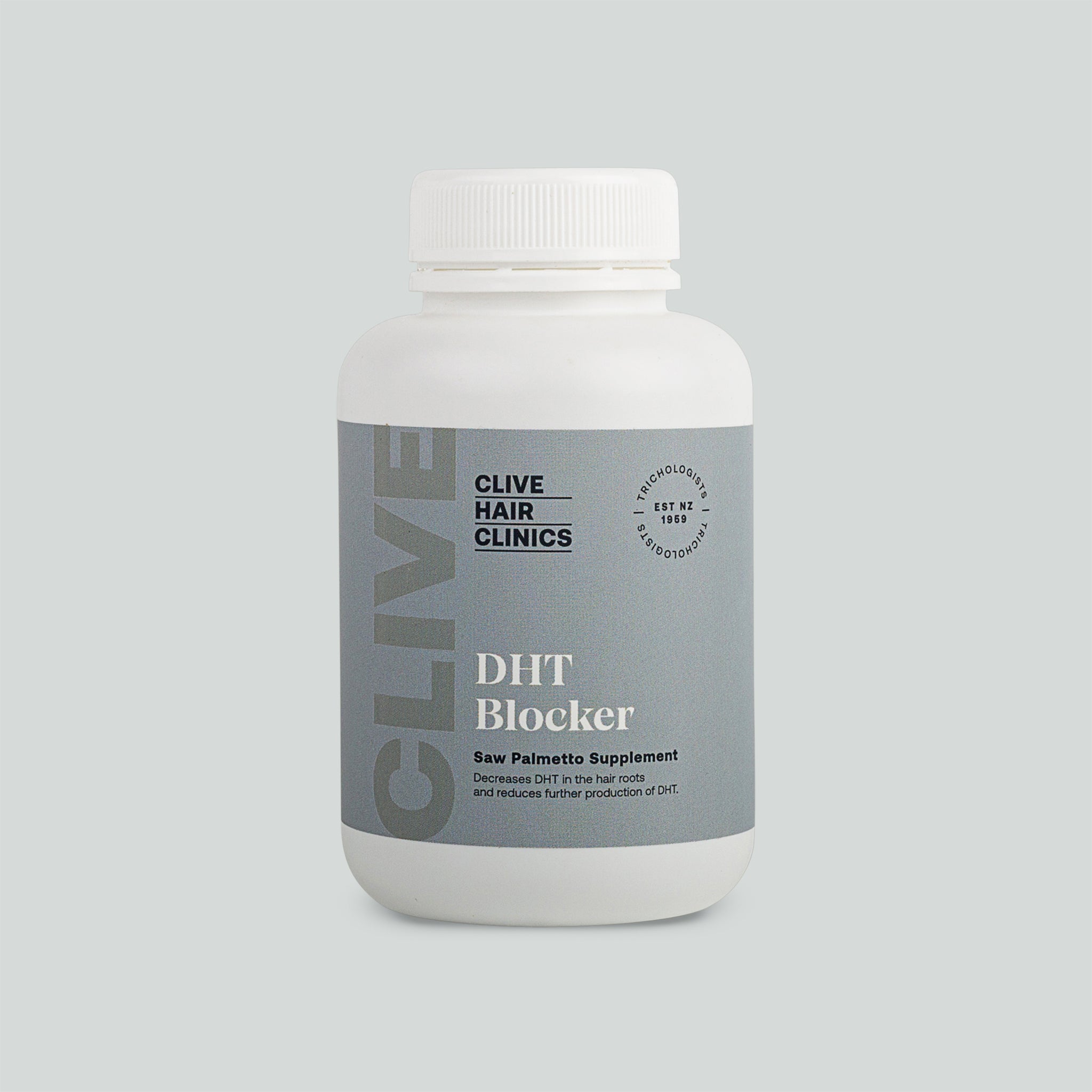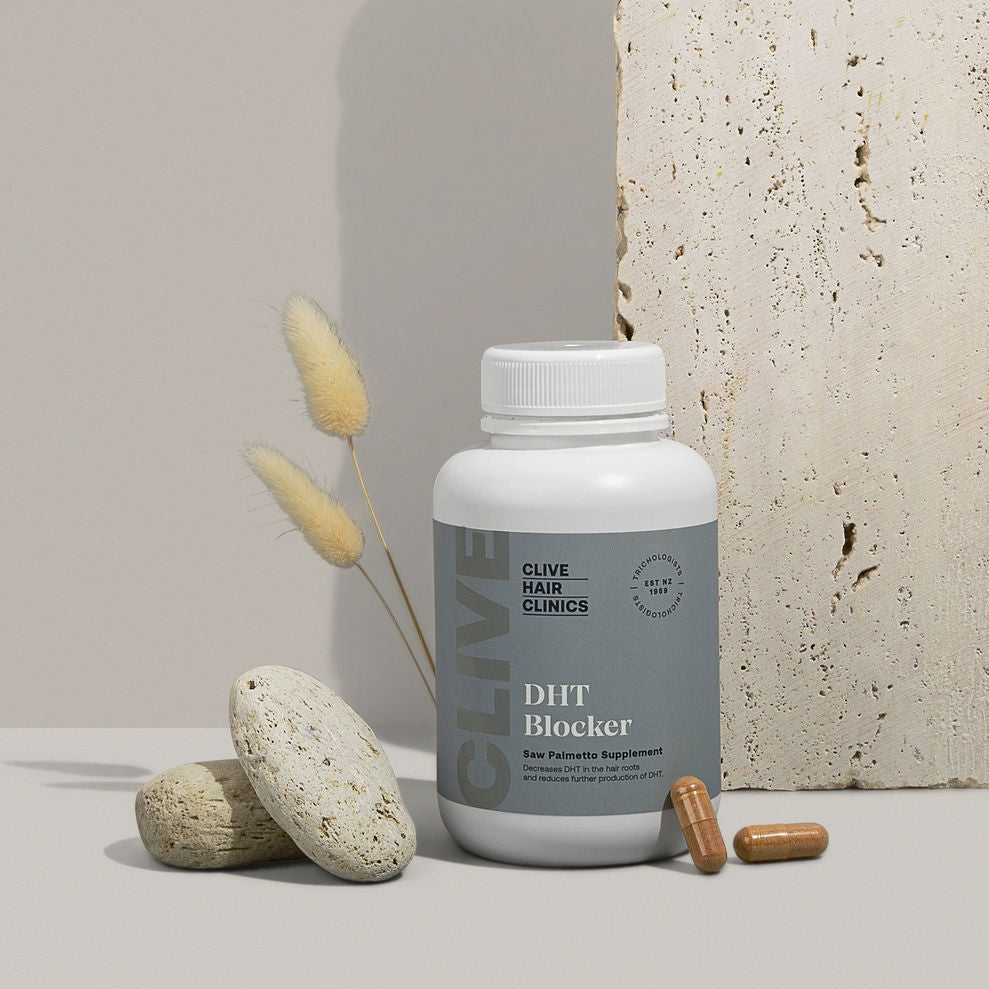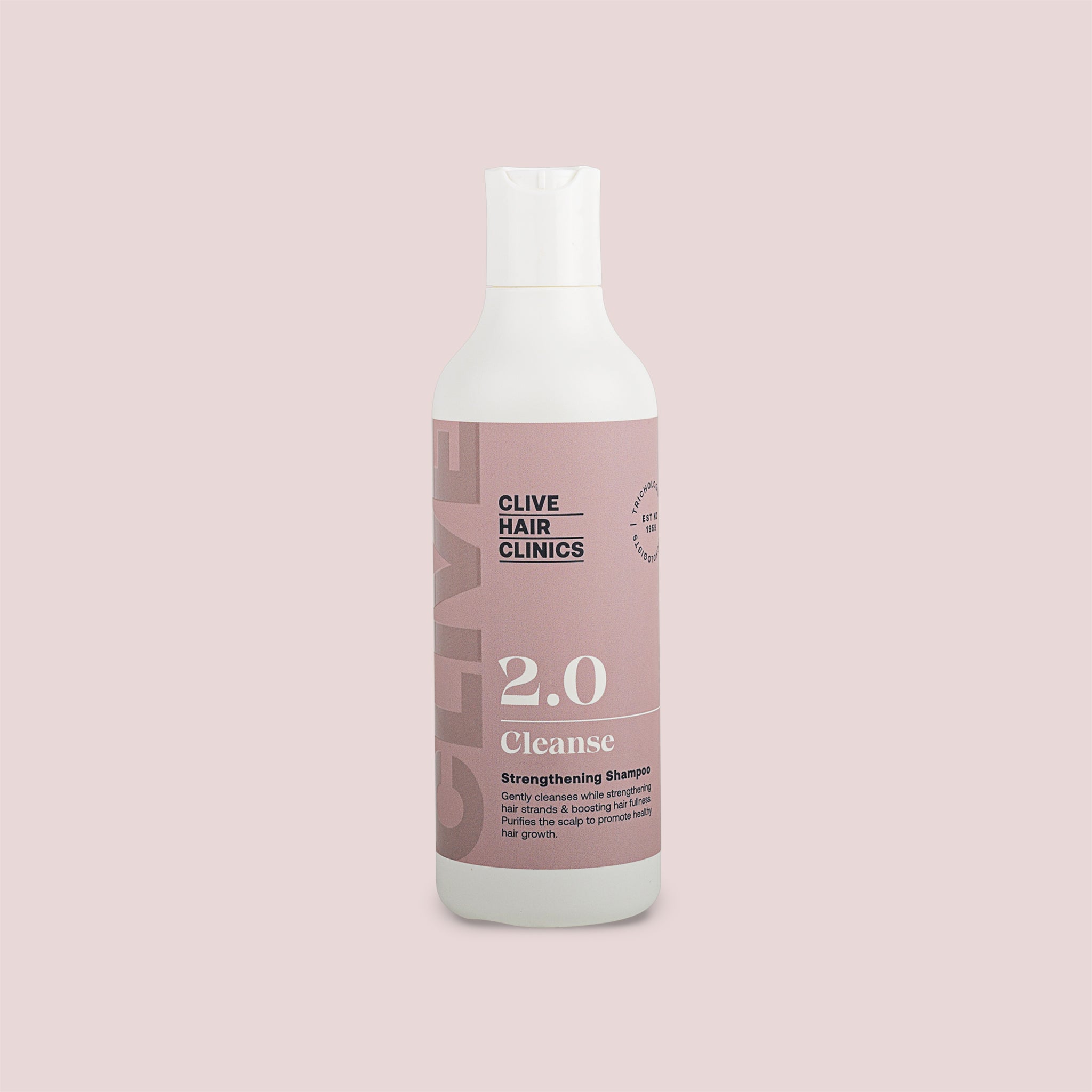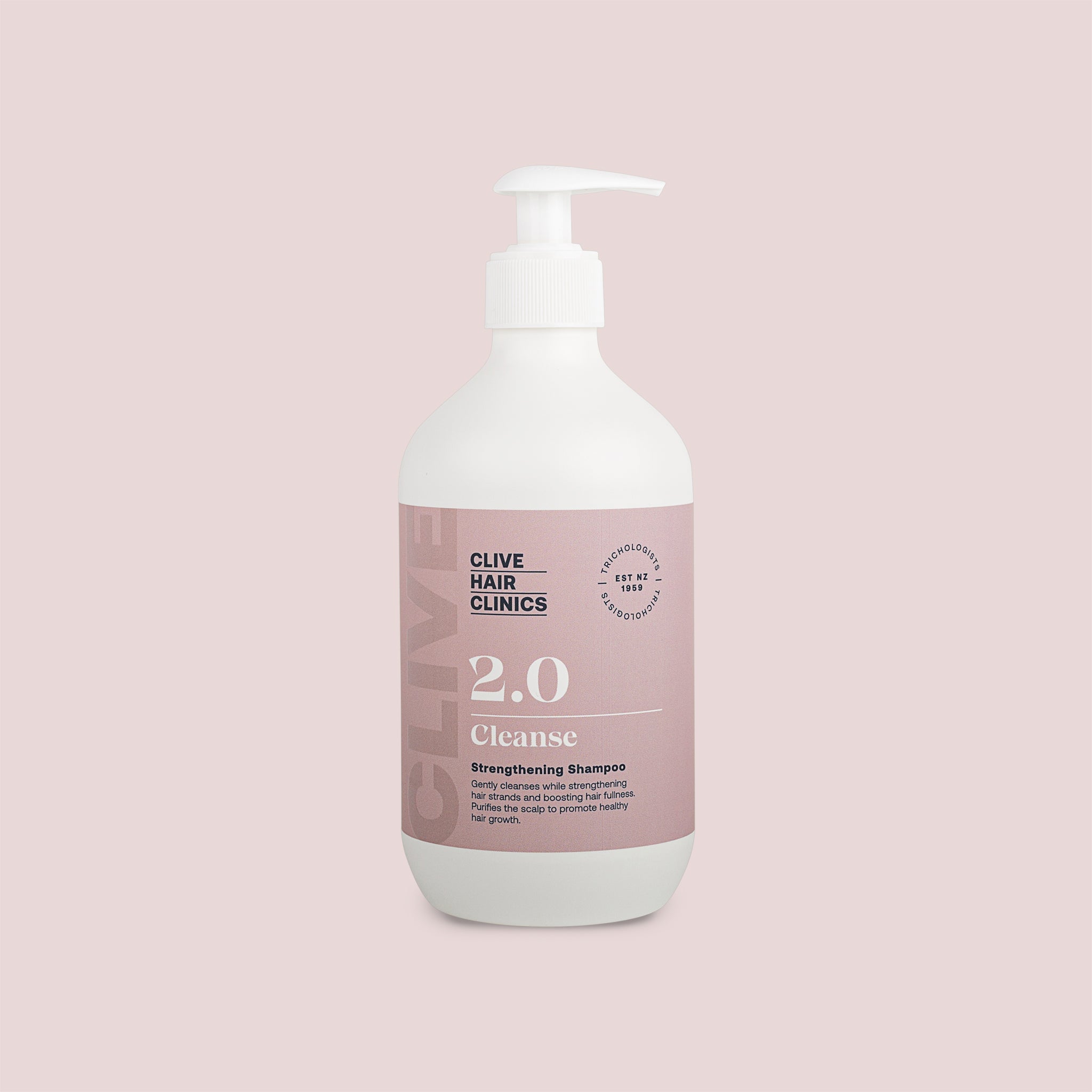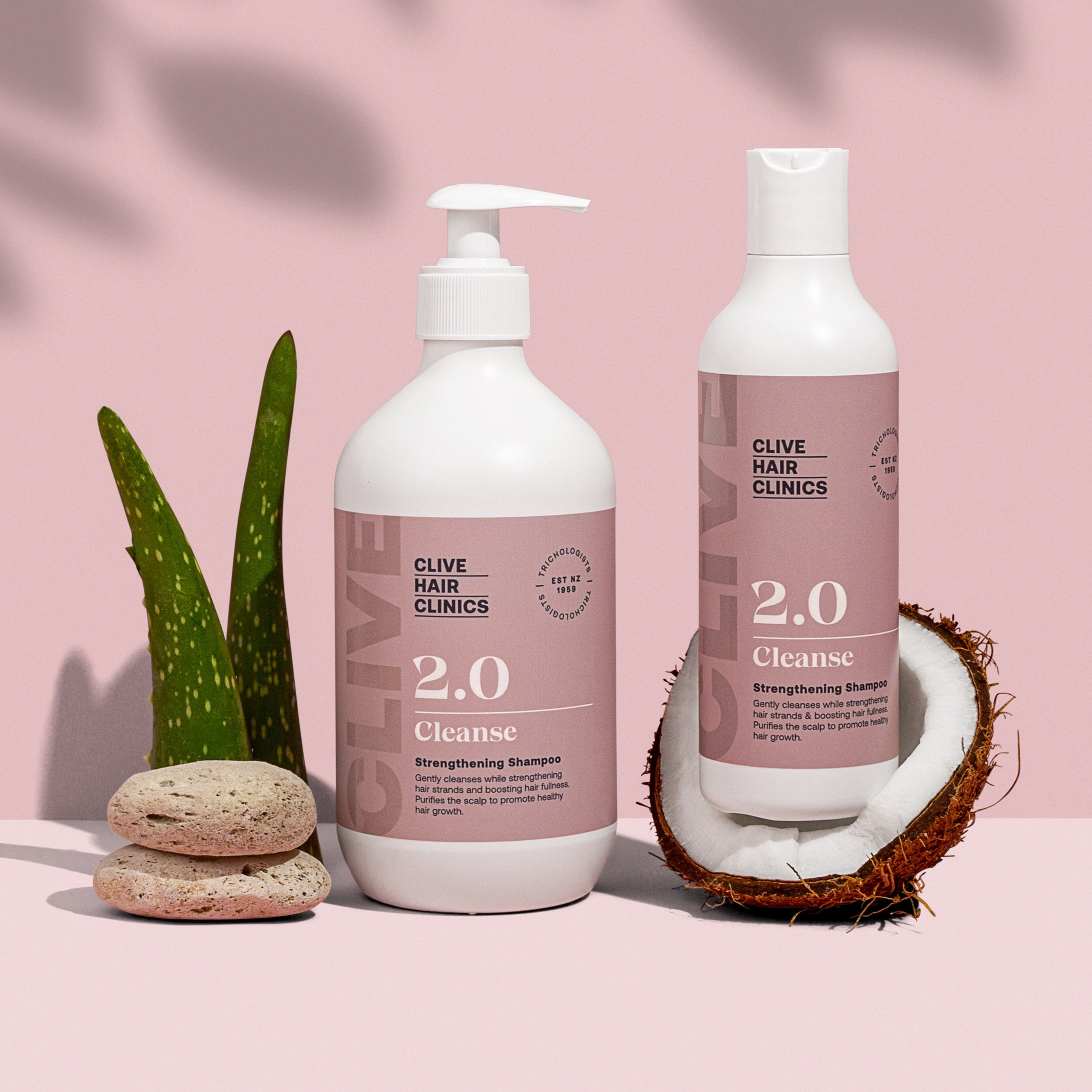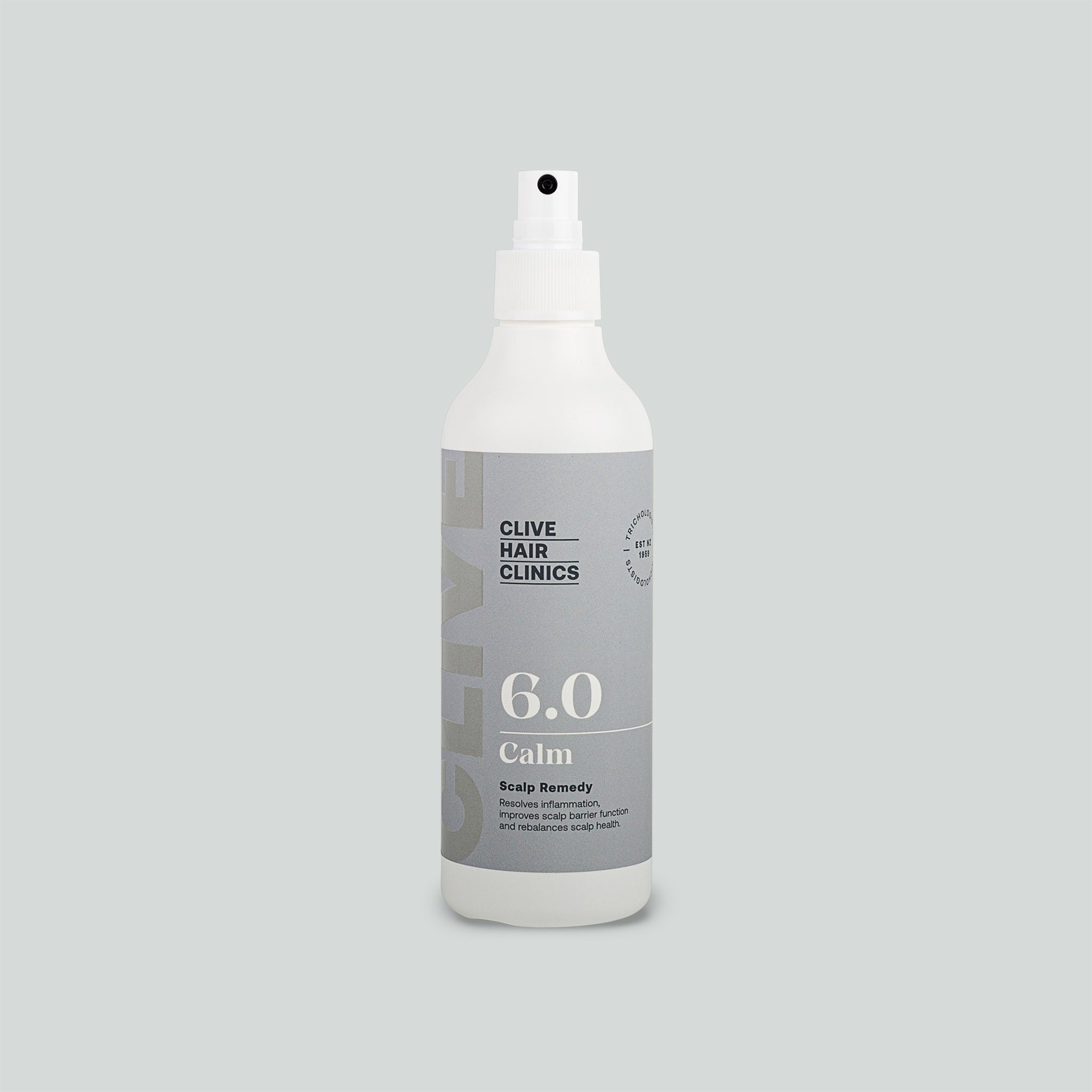Menopause is a natural transition in a woman’s life, often bringing a mix of emotional and physical changes. Among the lesser-talked-about aspects of this journey is hair loss, a very real and common part of menopause.

How does menopause affect your hair?
Hormonal changes play a significant role in menopausal hair loss. While the average age for menopause is fifty, many women notice changes to their hair such as loss of hair volume and length, long before. This is because the menopause transition typically has three stages: perimenopause, menopause and postmenopause. All of these stages see a drop in estrogen which will slow down the hair growth phase and increase the shedding phase triggering more hair loss than hair growth.
The decline in estrogen and progesterone levels, hormones that support hair growth, creates an imbalance that can increase the effects of testosterone, male hormones present in smaller quantities in women. This imbalance can lead to:
- Thinning hair on the scalp: Hair follicles shrink, producing thinner, shorter hairs.
- Hair shedding: A more noticeable amount of hair loss when brushing or washing.
- Pattern baldness: In rare cases, women might notice balding at the crown or sides of the head.
Other factors like stress, genetics, nutritional deficiencies, and medical conditions such as thyroid issues can also contribute to hair loss during this stage of life.

Practical Solutions to Manage Hair Loss
While hair loss during menopause can be unsettling, there are several ways to manage it and promote healthy hair growth:
-
Nourish From Within
Eating a balanced diet rich in vitamins and minerals - especially vitamins A, C, D, and E, biotin, and zinc - supports hair health. Omega-3 fatty acids, found in fish and flaxseeds, may also help improve hair density and shine. -
Check Your Hormones
If hormonal imbalances are significantly contributing to your hair loss, hormone replacement therapy (HRT) may be an option to explore. Consulting with your healthcare provider can help you determine whether HRT or other hormonal treatments are right for you. -
Gentle Hair Care Practices
Use shampoos and conditioners with good quality ingredients, avoid harsh chemical treatments and excessive heat styling. Opt for loose hairstyles and wide-tooth combs to minimise stress on your hair and scalp. -
Topical Treatments
Some hair serums can help stimulate hair follicles and promote regrowth. At Clive Hair Clinics, our Trichologists recommend using Stimulate to strengthen hair and stabilise hair loss and Hair Follicle Treatment to improve the overall health of the hair follicle. -
Mind-Body Approaches
Stress management techniques such as yoga, meditation, and regular exercise can support overall well-being and minimise the stress-related impact on hair loss. -
Scalp Health
A healthy scalp is essential for hair growth. Regular scalp massages will stimulate blood circulation to improve blood flow to the scalp. Using a Pre Shampoo Treatment to unblock pores and remove product build-up promotes healthy hair follicles and also invigorates circulation.

Topical treatments such as Stimulate and Hair Follicle Treatment can help improve the overall health of your hair follicles.
If your hair is suffering due to perimenopause, menopause or postmenopause then contact our Trichologists for advice on how to reduce hair loss and encourage hair regrowth.
